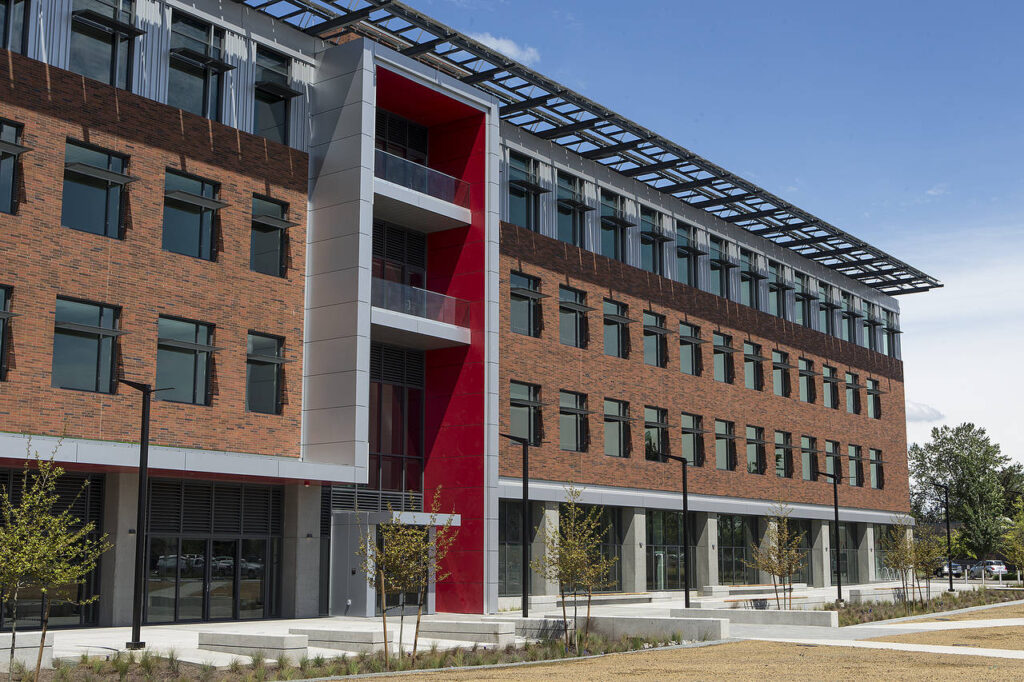
Building commissioning is a crucial process that ensures building systems operate efficiently, reliably, and sustainably. While some may view commissioning as an additional cost, it offers substantial returns on investment (ROI) and long-term value for building owners. Today we will be diving into the business case for building commissioning, exploring how it delivers tangible benefits, enhances operational performance, and maximizes the value of building assets.
Building commissioning is the systematic process of verifying and documenting that the building systems perform in accordance with the owner’s requirements and original design intent. It involves rigorous testing, inspection, and optimization to ensure that the HVAC, lighting, electrical, plumbing, and other systems operate efficiently and effectively. Commissioning is commonly performed during the design, construction, and occupancy phases of a building project, with ongoing monitoring and maintenance to sustain prolonged performance over time.
Building commissioning offers a compelling business case for owners by delivering measurable benefits and long-term value across several key areas:
- Energy Efficiency and Cost Savings: Commissioning helps optimize building systems to operate at peak efficiency, reducing energy consumption and minimizing utility costs. By identifying and addressing inefficiencies, commissioning can result in significant energy savings, often exceeding the initial investment in procuring the commissioning services. Studies have shown that commissioning projects typically achieve energy savings ranging from 5% to 25%, with payback periods as short as one to three years.
- Enhanced Operational Performance: Commissioning confirms that building systems function as intended, minimizing downtime, disruptions, and maintenance issues. By identifying and resolving deficiencies early in the building lifespan, commissioning improves system reliability, reduces equipment failures, and enhances occupant comfort. Improved operational performance translates into lower maintenance costs and reduced occupant complaints.
- Extended Equipment Lifespan: Commissioning helps prolong the lifespan of building systems and equipment by optimizing their performance and driving a reduction of wear and tear. Properly commissioned systems experience less stress, operate more efficiently, and require fewer repairs and replacements. By investing in commissioning upfront, building owners can extend the lifespan of their equipment and facilities to avoid premature equipment failure, resulting in savings on both replacement costs and downtime.
- Risk Mitigation and Compliance: Commissioning helps mitigate the risks associated with building performance, safety, and compliance. By ensuring that the building systems meet regulatory requirements, industry standards, and best practices, it reduces the risk of liability, fines, and legal issues. Additionally, commissioning helps identify and address potential safety hazards, environmental risks, and code violations, ensuring the health and safety of building occupants and those surrounding.
- Increased Property Value and Marketability: Well-commissioned buildings command higher property values and are more attractive to tenants, investors, and buyers. Commissioning demonstrates a commitment to quality, sustainability, and operational excellence, enhancing the marketability and perceived value of the property. Building owners can leverage commissioning certifications, such as LEED, to differentiate their buildings in the marketplace and attract premium tenants and investors.
To illustrate the tangible benefits of building commissioning, let’s consider a hypothetical case study of a commercial office building undergoing the commissioning process:
- Energy Savings: Commissioning identifies and addresses HVAC inefficiencies, resulting in a 15% reduction in energy consumption. With an annual utility cost savings of $50,000, the payback period for commissioning services is less than two years.
- Operational Efficiency: Commissioning resolves issues with building automation systems, reducing occupant complaints and service calls by 30%. Improved operational performance leads to increased tenant satisfaction.
- Equipment Lifespan: Commissioning extends the lifespan of HVAC equipment by five years, saving $100,000 in replacement costs. By optimizing performance and reducing wear and tear, commissioning helps avoid premature equipment failure and downtime.
Building commissioning offers a compelling business case for owners by delivering tangible benefits, ROI, and long-term value across multiple areas. Commissioning helps maximize the return on investment by optimizing energy efficiency, enhancing operational performance, extending equipment lifespan, mitigating risks, and increasing property value. Investing in commissioning upfront pays dividends in terms of reduced operating costs, improved occupant satisfaction, and enhanced building performance, making it a strategic decision for any building.
